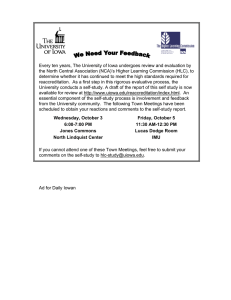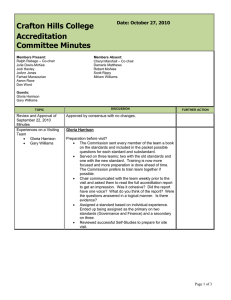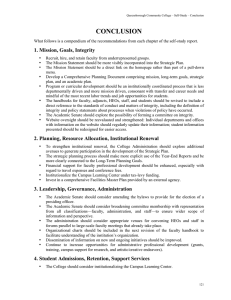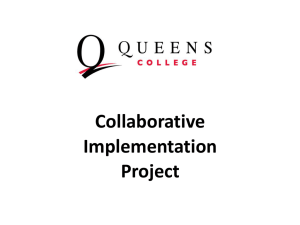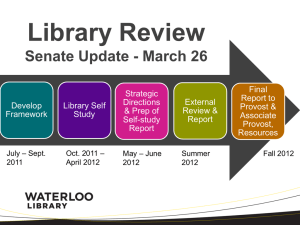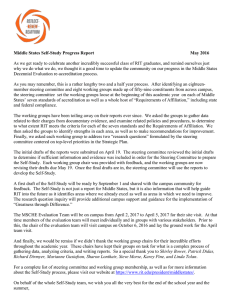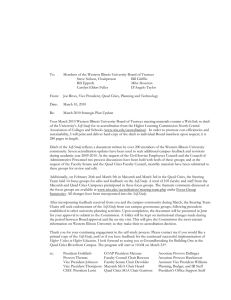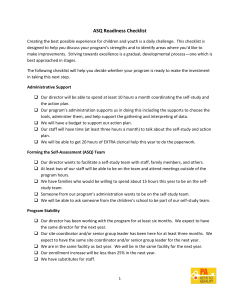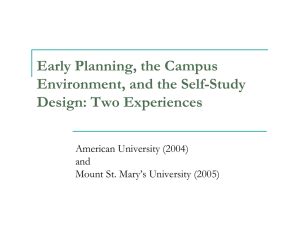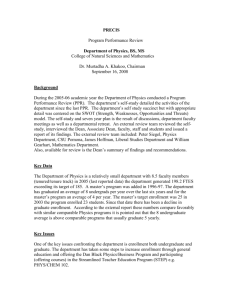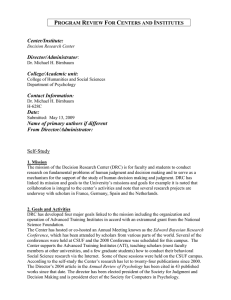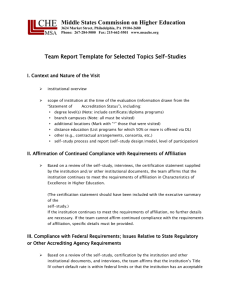Curating a High-Impact Document Room
advertisement
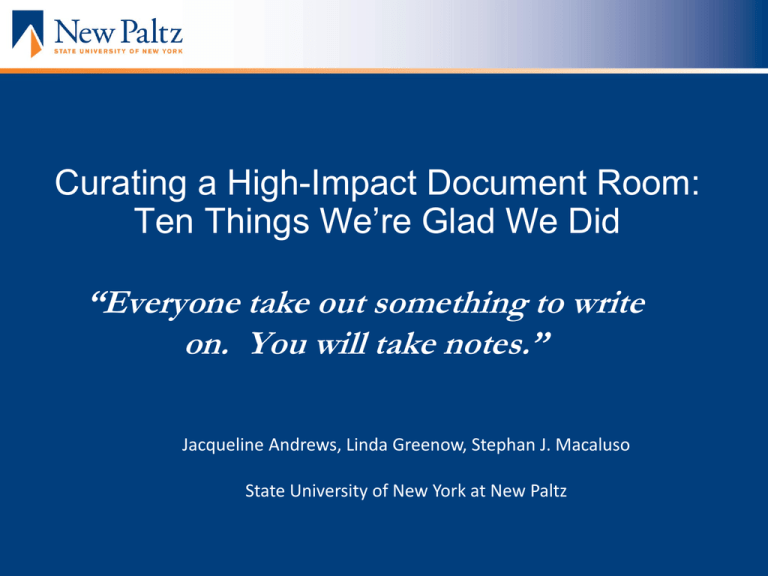
Curating a High-Impact Document Room: Ten Things We’re Glad We Did “Everyone take out something to write on. You will take notes.” Jacqueline Andrews, Linda Greenow, Stephan J. Macaluso State University of New York at New Paltz Before we Begin… • What % of your documents do you believe are currently in print? Digital? • List two or three items that are routinely collected by campus departments or by your Provost’s office. • What comes into your mind when we say “student work?” Who at your institution collects samples of student work? #1: We recognized the need for documentation right from the self-study design phase #2: We had the right people on our document room team People who were… • Empowered to solicit documents • Good at collecting and organizing documents • Good at curating spaces: vision! Action Plan Question: Name at least three (3) people from your campus that should be involved in the document room. Whom would you invite, and why? # 3: We decided what to keep in print, and what to keep in digital format #4: We decided there would be a digital collection, and a curated exhibit space Action Plan Question: What is your model of a ‘document room’? What objects represent your campus? #5: We thought outside the 8 ½ x 11” frame Action Plan Question: Which technologies/ online spaces are you using to store campus documents (Assessment? Planning? Student work?) Do you have an assessment management system? #6: We formed close bonds with the accommodations team, the tech team, and MS leadership Action Plan Question: If you think that you’ll have a physical document room, where might that space be? Which features might you want it to have? #7: We knew (well, pretty much) who had which documents Inventory of Documents for Self-Study Design, mapped to the Standards IPEDS Data, Standards 1, 7, 8 14 Institutional Factbook, Standards 1, 7, 8, 14 Student Evaluation of Instruction Summary Reports, Standards 10 & 11 Action Plan Question: Name three (3) people at your institution who can point out where key documents are located. #8: Organization and Description • Dates (no more after…) •Campus slang (lexicon?) •Affirm which standard •Tag the item •Use folders: online and physical •You can describe too much! •Physical items must be in one, and only one, place, even if they apply to more than one standard. No duplicates! #9: We had a timeline. We recommend a 24-month timeline to facilitate document collection* TIMELINE: Collection of Data and Documents Begins Very Early! Collection of Data and Documents Begins in Year 1 Prepare Inventory of Documents for SelfStudy Design ACADEMIC YEAR 1 Submit Self-Study Design in Fall Committees Begin Working Self-Study Report is Drafted in Summer Committees Develop Reports Reports are due ACADEMIC YEAR 2 Circulate Self-Study Report in Fall Team Chair Visits in Fall Commission action on accreditation in June Self-Study Submitted to MSCHE in January Team Visit in Spring ACADEMIC YEAR 3 #10: Keep an Open Mind OR...“This will be messy” Thanks for listening! • We hope we’ve helped you on your way to a successful document room/catalog and a very successful reaccreditation visit. • If we can help, give us a jingle: macaluss@newpaltz.edu greenowl@newpaltz.edu andrewsj@newpaltz.edu
